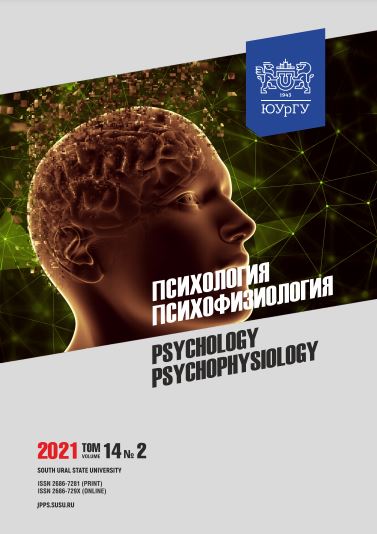ANALYSIS OF RUSSIAN DISSERTATIONS DEDICATED TO MENTAL SETS
Abstract
Background. Mental sets as a predisposition to reasoned behavior continue to attract researchers from the beginning of the 20th century. Previously they were considered mainly as willingness to follow unconscious stereotypical patterns (a fixed set according to D. Uznadze, an operational and task set according to A. Asmolov), as a conscious focus on activities motivated by their personal meaning (a mindset according to A.G. Asmolov) or as the subject's inclination to reproduce a certain behavior (attitude in social psychology). Now the concept of mental sets is elaborated through their role in psychological preadaptation to indeterminacy, which plays an important role in the historical and evolutionary process and, therefore, dictates the need to analyze the respective scientific literature. Aim. The paper aims to analyze Russian dissertations dedicated to the psychology of mental sets starting from the publication of the Asmolov’s concept of a set-related hierarchy (1976) and to establish the modern content attributed to this phenomenon. Results. The article describes the results of all 95 Russian dissertations on the issue of mental sets since 1976 based on the abstracts of dissertations stored in the Russian State Library. Dissertations belong to the following scientific areas: 39 dissertations in social psychology, 24 in general psychology, 20 in educational psychology, 4 in developmental psychology, 4 in legal psychology, 2 in labor psychology, 1 in medical psychology and 1 in physiology. The scientific and practical significance of the results obtained is associated with contribution to the phenomenological basis of the general theory of mental sets. It has been established that most authors adhere to the hierarchical nature of sets proposed by A. Asmolov. The largest number of studies is dedicated to the description of task sets and mindsets when it comes to perception, communication, family relations, parenting, education, career development, jurisprudence, relations in law enforcement agencies, politics. Some works explain mental sets as attitudes, which is in line with foreign studies. These attitudes include cognitive, affective and conative components. Negative attitudes are considered separately. Conclusion. An important feature of Russian studies on mental sets is their focus on mindsets within the concept of A. Asmolov. At the same time, some authors explain mindsets through attitudes, thereby mixing these concepts. Historical and evolutionary analysis of mental sets as a form of anticipating the future (preadaptation) performed by A. Asmolov in 2017 has not yet been found in Russian dissertations.
Downloads
References
2. Uznadze D.N. General psychology. Moscow: Smysl; St. Petersburg: Piter. 2004: 413.
3. Asmolov A.G. Activity and installation. M.: MSU Publ. House. 1979: 150.
4. Asmolov A. Effects of set in forecasting of the future: historical evolutionary analysis commentary on the papers “Set and unconscious semantic priming: two different labels or two distinct phenomena?” by A. Koyfman and “Comparing two paradigms and the ‘prepersonal level’ of priming” by M. Filippova. Rossiiskii zhurnal kognitivnoi nauki = The Russian Journal of Cog-nitive Science. 2017; 4 (1): 26–32. https://elibrary.ru/item.asp?id=35629096
5. Sarjveladze N.I. Personality and its interaction with the social environment. Tbilisi: Metsniereba, 1989: 204. http://psylib.org.ua/books/sarjv01/index.htm
6. Devyatkin A.A. The phenomenon of social attitude in the psychology of the XX century. Kaliningrad. Kaliningrad University Press. 1999: 384.
References on translit
-Copyright (c) 2021 Psychology. Psychophysiology

This work is licensed under a Creative Commons Attribution-NonCommercial-NoDerivatives 4.0 International License.



